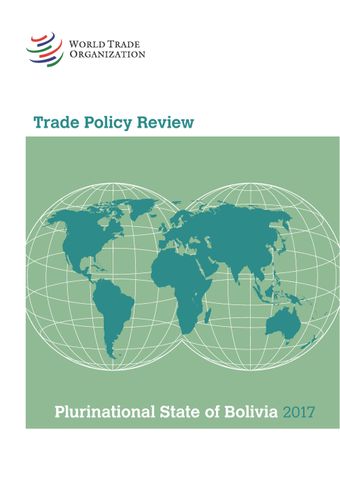Report by the WTO Secretariat

- By: World Trade Organization
- Source: Trade Policy Review: Bolivia 2017 , pp 11-157
- Publication Date: June 2018
- DOI: https://doi.org/10.30875/52e03417-en
- Language: English
Since 2006, the Plurinational State of Bolivia (Bolivia) has pursued an economic policy whose objective is the structural transformation of the country. The policy is based on the socalled economic, social, communitarian and productive model (MESCP) in which the State plays a vital role by steering and controlling the strategic sectors and participating directly in the economy. According to the authorities, this model seeks to redistribute income and reduce poverty by transferring resources from the strategic sectors that generate surpluses (above all mining and hydrocarbons) to other sectors that promote income and employment. The measures adopted to implement the MESCP include the nationalization of hydrocarbons in 2006 and the consolidation of the role of State enterprises in the Bolivian economy. The model aims to satisfy domestic consumption first, followed by exports, and this priority is reflected in a number of policies adopted (see below). Bolivia’s trade policy has developed in the light of these objectives, adapting to an increased presence of the State in economic activities and the prioritization of the domestic market.
-
From This Site
/content/books/9789287045973c004dcterms_subject,pub_countryId-contentType:WorkingPaperSeries -contentType:Periodical -contentType:BookSeries -contentType:ReportSeries105


